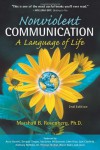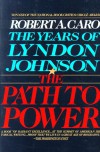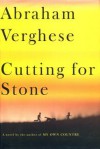Currently reading
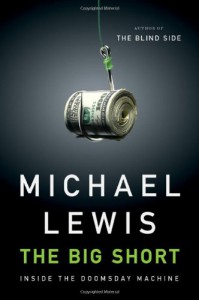
A fascinating read. Michael Lewis has a well-deserved reputation for taking dry, complex subjects and making them accessible and interesting. He earns it pretty well here. There are still a lot of things I don't understand about the financial markets in which this book is set, but I got what I needed to enjoy this book. His biggest trick, of course, is simply personalizing the issue. It doesn't have to be about what it's about; it can be about the people involved. Which is pretty much what carries this book. But he's done a good job choosing his characters, and a great job bringing them to life.
I probably should have read Liar's Poker as an introduction to his work, and maybe I'll do that one next. But I enjoyed this one quite a bit.

Read this with the kids, and we all enjoyed it. It was quite interesting to imagine having an entire island all to oneself—both the good and bad parts of that. It really lit up my 7-year-old daughter's imagination, especially.
Not long before we finished, I read that it was based on a true story, and a bit about the real woman. I have to admit, that kind of detracted from the value of the story for me. At the end of the book, it basically shifts over into that real-life story, and we all lost interest at that point. Fortunately, it was the last chapter. And it didn't mar the overall experience of the book.

This is the first book I've actually read by Walter Mosley, and it did not disappoint. His writing is tight and sturdy; I knew from early in that I was in good hands. Mosley draws an exquisite internal portrait of a man whose mind is a blur; we get to watch in fine detail as the haze clears and he takes control of his life in its final days.
The characters are probably the strongest part of this book. Ptolemy himself, and the people he interacts with routinely, are portrayed with a masterful realism. There are more mythical characters as well, or perhaps I should say mythical relationships, and they are powerfully and beautifully rendered. I'm thinking especially of the time Ptolemy spends with his long-gone mentor Coydog McCann, and also of the acidic relationship Ptolemy develops with the doctor who treats him. There is so much color and light in these spaces, you can't help but be drawn in.
I enjoyed this immensely, and can't wait to dive into some more of Mosley's work.

This is the first book I've actually read by Walter Mosley, and it did not disappoint. His writing is tight and sturdy; I knew from early in that I was in good hands. Mosley draws an exquisite internal portrait of a man whose mind is a blur; we get to watch in fine detail as the haze clears and he takes control of his life in its final days.
The characters are probably the strongest part of this book. Ptolemy himself, and the people he interacts with routinely, are portrayed with a masterful realism. There are more mythical characters as well, or perhaps I should say mythical relationships, and they are powerfully and beautifully rendered. I'm thinking especially of the time Ptolemy spends with his long-gone mentor Coydog McCann, and also of the acidic relationship Ptolemy develops with the doctor who treats him. There is so much color and light in these spaces, you can't help but be drawn in.
I enjoyed this immensely, and can't wait to dive into some more of Mosley's work.

This is the first book I've actually read by Walter Mosley, and it did not disappoint. His writing is tight and sturdy; I knew from early in that I was in good hands. Mosley draws an exquisite internal portrait of a man whose mind is a blur; we get to watch in fine detail as the haze clears and he takes control of his life in its final days.
The characters are probably the strongest part of this book. Ptolemy himself, and the people he interacts with routinely, are portrayed with a masterful realism. There are more mythical characters as well, or perhaps I should say mythical relationships, and they are powerfully and beautifully rendered. I'm thinking especially of the time Ptolemy spends with his long-gone mentor Coydog McCann, and also of the acidic relationship Ptolemy develops with the doctor who treats him. There is so much color and light in these spaces, you can't help but be drawn in.
I enjoyed this immensely, and can't wait to dive into some more of Mosley's work.

Let me start by saying that I'm a big fan of Jane Goodall. I like what I know of her scientific work, I am in line with her advocacy, and she seems like a pretty cool person overall. And of course, if you liked that disclaimer, you're probably not going to like the rest of this review. Because I was quite disappointed in this book.
It's pure advocacy, of course, which isn't necessarily a deal-breaker for me (though it is an obstacle). But it's not a very robust work, at all. My major complaint, and I can't believe I'm about to say this, is her truly shoddy use of science. Again and again, she makes sweeping claims that lean very heavily on scant evidence. Besides which, that evidence is either poorly laid out or obviously faulty. She cites certain claims that I know to be problematic, and she isn't just citing them in passing, or as part of an otherwise well-supported claim. There are other citations that I'm not as familiar with, but in this context, I find it difficult to put any confidence in them. So in the end, though I agree almost entirely with her conclusions, I didn't draw much insight or inspiration from this book. She's preaching, not just to the choir, but to only its most enthusiastic, least skeptical members. If you are one, you should love this. If you're not, I'd advise you to skip it.
Also, the subtitle is thoroughly misleading. This book is much more about consumption (of food, granted) than about eating. Yet another disappointment, though a much smaller one.

It's a good book, though pretty brief in parts. It makes an OK introduction, though, for precisely that reason.
A more significant complaint might be that it's not objective. There is a distinctive thread running through Armstrong's work, which is her belief that the "true" form of any religion is compassionate, humanist, based on some flavor of the Golden Rule. As such, she simply rejects most forms of fundamentalism, or any religious view that is particularly rigid, oppressive, or violent. That's certainly present here. It's not a neutral view of religion, though, and it's not one that everyone shares. On the other hand, the firmness of her conviction provides Armstrong with a good vantage point from which to elucidate what she calls the "symbiotic relationship" between fundamentalism and "coercive secularism." I found that insight quite thought provoking and valuable, and so I'm more than happy to work through her subjective viewpoint. Nor do I think there would be much value in her qualifying or disclaiming her non-objective sense of religion. All of which is to say, it works for me.
So I enjoyed the book—the third I've read from this author—and I'll probably take a look at A Short History of Myth as well. But I'll also be looking for a more in-depth introduction to Islam, because this one was a little on the compact side.

Read this aloud with the kids. For a novel with a female protagonist, and a relatively feminist theme, it barely even manages to pass the Bechdel Test. And (very slight spoiler) that female protagonist is saved by a man much more frequently than she manages to save herself. Furthermore, the quality of the writing itself isn't that great—about what you'd expect from a YA novel, I guess.
That said, there were redeeming qualities. Matthew Wood, for instance, is an interesting character, and his relationship with Kit is intriguing. And Kit herself follows a character arc that's not overly predictable or simple. It's not a terrible book, but it's certainly not among the best we've read as a family.

I was surprised how much I enjoyed this book. The mythology is imaginative, well realized, and uses some really great iconography. The animal daemons are a great conceit, and I love the imagery of Dust. The individual characters are well filled out, as are the larger nations/cultures. At times the exposition is a bit blunt, I suppose— Iorek telling Lyra that his armor is his soul, e.g., or Lord Asriel explaining the power inherent in the daemon bond. But that bluntness has been typical of every fantasy/sci-fi book I've ever read, and it's handled as deftly here as I've seen in any other. Overall, this was a fun, engaging read, and I can't wait for my kids to read it so we can share a discussion.

John Brown is an enigmatic character; more than a century after his life, it's difficult to tell whether he was a hero, a lunatic, or both. This book goes some way in illuminating the question, though to my mind, not far enough. One comes away from it with a very clear sense of why anyone might see him one way or the other, but with little sense of how he was able to recruit and retain a cohort of fighters willing to die behind him. Certainly their devotion to the cause was a factor, but following John Brown into battle must have required an incredible amount of faith in the man himself. What was it about him that these men adhered to? Unfortunately, I have little more of an idea now than I did before starting the book.
It's well enough written, and at least a few of the characters are reasonably sketched out. The intersections with prominent historical characters were intriguing as well. But the pacing isn't great, and as such I found it a bit difficult to really attach to any of the characters, including Brown himself.

John Brown is an enigmatic character; more than a century after his life, it's difficult to tell whether he was a hero, a lunatic, or both. This book goes some way in illuminating the question, though to my mind, not far enough. One comes away from it with a very clear sense of why anyone might see him one way or the other, but with little sense of how he was able to recruit and retain a cohort of fighters willing to die behind him. Certainly their devotion to the cause was a factor, but following John Brown into battle must have required an incredible amount of faith in the man himself. What was it about him that these men adhered to? Unfortunately, I have little more of an idea now than I did before starting the book.
It's well enough written, and at least a few of the characters are reasonably sketched out. The intersections with prominent historical characters were intriguing as well. But the pacing isn't great, and as such I found it a bit difficult to really attach to any of the characters, including Brown himself.

I don't have any kids in school, so this isn't a pressing issue for me personally. But it's a national concern, and as such, I wanted to know more about it. I have always had a lot of respect for Emily Bazelon, and for her take on this issue specifically, so I figured I'd give the book a shot.
What I like about Bazelon's approach is the way she carefully, methodically works to get beneath the hype (which inevitably attends any situation where there's even an off-hand accusation of bullying) and analyze what's really going on. Over and over again, she identifies the complexities in stories that people on all sides would like to paint as black-and-white. What she finds is that there are few truly sadistic bullies or truly helpless victims, but that these scenarios are often suffused with miscommunication and a disturbing lack of empathy from one or more of the people involved.
I also like her common-sense skewering of Facebook, and their ham-handed way of dealing with this issue.
It was a good read, well worth the time. Someone with a more personal stake in the issue might well find it overly academic, I suppose.

A beautiful, engrossing coming-of-age story, which casually treads the line between myth and realism. Omakayas and her family are each interesting, unpredictable, and worth spending time with.
My 9-year-old daughter loves this book. I just listened to it with my 11-year-old son, and we enjoyed it quite a bit also. I hadn't realized until now that it was part of a series; I'll definitely seek out the others.

Man, I love this book. I tried reading it once before, 10 or 15 years ago, and let the "frame" stand in the way. (To be fair, it's pretty lame—as most frames are.) So glad I gave it another shot, though, and got past that this time.
Cather's writing here is on a par with O Pioneers!. She fleshes out her characters and their relationships fully, from the inside. Realist writing is often restrained by Chekhov's insistence on "removing everything that has no relevance to the story." Cather's realism is never so minimal, and is all the more real for it. She fully incorporates anything that will help build her characters. The connections may be coarsely drawn, in the way that human relations can be. But these loose, ragged details are not, as Chekhov might call them, unkept promises. In the end there is a very human essence to her people and her places, that can only appears from a slight angle. She could never have shown it directly. I come away from her best work with a feeling, more than an idea. Which is exactly how I came away from this one.
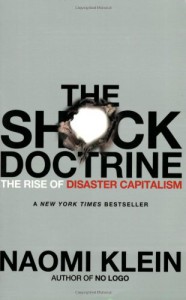
I'm largely convinced by this book, though it does feel a bit thin overall, and more than once I found myself shying away from the alarmism that seems to run beneath it. Still, Klein has an awful lot of believable facts on her side; enough to paint the picture of a powerful group of people only too happy to pounce on any crisis for financial and ideological gain. She certainly makes short work of Milton Friedman himself, and doesn't leave much wiggle room for his neocon disciples. She covers a lot of ground relatively quickly, however, and in doing so she doesn't always manage to support her arguments. Once or twice too often, she allows it to rest on circumstance and innuendo. She may be accurate in her assessment, or she may not. And the book is certainly a compelling read. But one suspects that a bit more thoroughness might have yielded more tempered—if less provocative—conclusions. Overall, though, as I began by saying, I buy a lot of what she's selling. I hadn't expected to find much more reason to be cynical about the neocon agenda, but how wrong I was. That said, her concluding chapter is genuinely uplifting, and gives you plenty of reason for hope if you're not uninterested in such things.
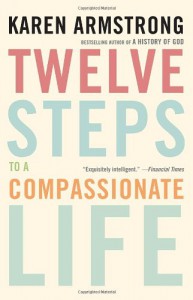
This book is really intended as a program of sorts, which you're supposed to follow—there are twelve actual steps, and you're to finish each one before moving on to the next. So I should start by admitting that I didn't do that at all. I just went through it like a book. I would actually like to do it as intended, but for now I'm just reviewing it from where I am.
It was well worth reading. Armstrong's views on spirituality and human nature have always resonated with me, and this was certainly no exception. Her project here is, essentially, to take the Golden Rule out of the realm of cliché, and expand it into a guide for living a meaningful life. It may be that I'm already in line with her thinking, but I think she managed to reach that goal. In reading this, I've devoted a lot of time to thinking about the ways in which I interact with other people, at all levels. Aside from the insights I've gained from that, I also feel drawn to change those interactions and relationships so that they're more . . . life-serving, I guess (as long as we're elevating clichés). I really am hoping to go through this again, the way she intended it, and I'm anxious to see what effect it will have.


